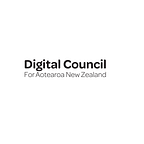Call to action: Time to Improve the Care & Protection of Personal Information Online
By Andrew Weaver, Executive Director, Digital Identity New Zealand
Last week my organisation, Digital Identity New Zealand, published new research highlighting the need for organisations to improve the care and protection of personal information and identity data.
It’s important research and we’d like to thank the Digital Council for their sponsorship this year.
Key findings from the research
Some of the key findings include:
- Two-thirds of New Zealanders are now more likely to go online rather than interact face-to-face.
- 90% find it difficult or are unsure how to protect their personal information and identity data.
- There’s a growing awareness of the way in which personal information is harvested and used by organisations and technology providers online.
- There’s a high degree of anger and disappointment about the widespread sale and sharing of that information.
- There is recognition of the importance of taking personal responsibility to protect themselves online. However, 65% of respondents find it is difficult to do.
- 34% of respondents believe that businesses must take a greater share of responsibility, up from 29% in 2019.
What do the findings mean?
Overall, I’d say the research says there is a begrudging acceptance of the collection of personal data online.
People know when they go online they are automatically giving something away. They don’t like it. But they accept it happens.
As organisations, I think we have done an excellent job in raising awareness of some of the risks and challenges associated with our highly connected world.
But I also think we’re placing too heavy a burden on people to protect themselves (our brains can only store so many complex passwords!).
Call to action
There are several things we can do.
Firstly, I think we need to adjust our systems and processes to make it easier for people to understand what’s needed and take action.
The tools and technology are there for us to do this — and there is a very real opportunity for organisations to play a leading role in establishing a better way.
Secondly, we need to adjust our thinking.
For example, if we recognise that online identity is taonga, then it just makes sense to treat it with dignity, respect and care.
This places a great deal of responsibility on organisations as kaitiaki (custodians and guardians) of identity and personal information.
As one participant surveyed in the research said: ‘I don’t know where to start when it comes to protecting myself…it is just too hard.’
In my mind, it’s now our job to:
- increase transparency
- provide meaningful privacy controls
- provide simple, straightforward policies and technology that make it easier for people to take meaningful action.
It’s time to change our online harvesting mentality and recognise a different foundation where identity is taonga.
Snapshot of findings from the Identity & Trust 2020 research
Background
This year’s research was conducted by Yabble and commissioned by Digital Identity NZ.
Partners included InternetNZ and the Digital Council for Aotearoa New Zealand, with support from Middleware NZ, ASB, Department of Internal Affairs, Payments NZ, P^werFinance, Tradewindow and 2Shakes.
To learn more, watch the replay of two Techweek TV 2020 panel discussions exploring the research and its findings.
